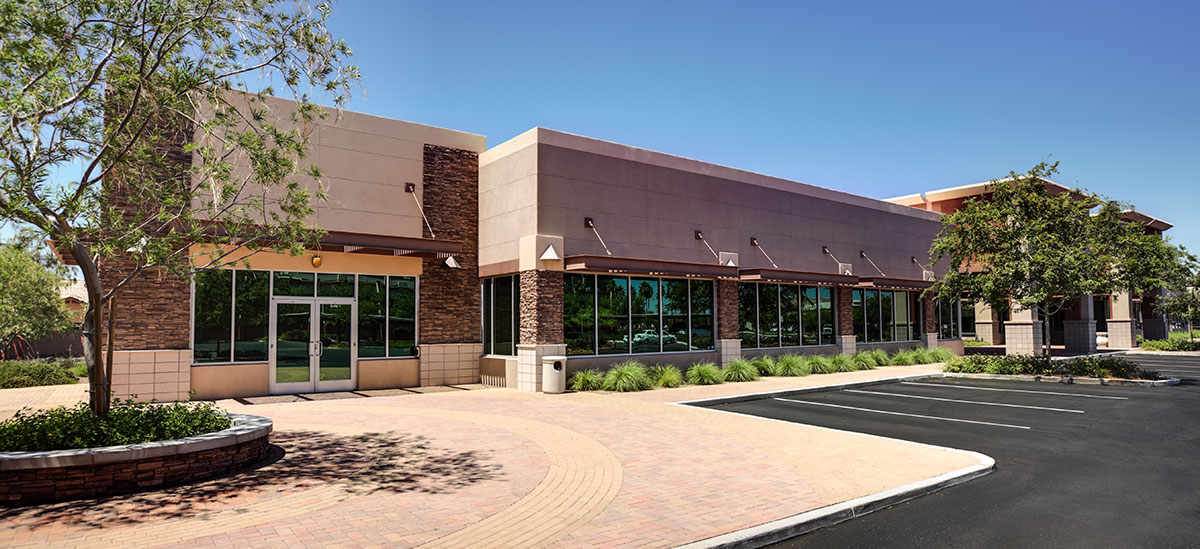
If you’re a healthcare professional who owns your practice, you know that every dollar counts in garnering the highest profit while offering the best patient care. However, you might be surprised to find that you could be losing money every single month if you’ve leased, rather than purchased, the building where you practice.
Suppose you’ve ever considered relocating your medical practice or have gotten a line on a great available local space. The time might be right to buy your medical facility rather than lease, particularly if you own a specialty, dental or veterinary practice that allows for mobility.
Here are seven benefits to consider:
1. You can take advantage of low interest rates.
Timing is everything in real estate, and while interest rates just ticked up slightly, they are still at historically low levels. Given the prediction in increased rates, now could be the optimal time to lock in an appealing rate before they trend higher. A specialty banker can discuss the options that are right for you, including the potential of taking advantage of attractive rates for SBA loans.
2. You can make the changes you want and need.
The healthcare market is ever-changing with new technological advances. Practitioners know they need to keep their practice modern to continue attracting and retaining clients – not to mention the staff and fellow practitioners who like a cutting-edge environment. However, suppose you get stuck in a lease. In that case, you may have trouble reconfiguring your space to take advantage of evolving service models, such as telehealth or digital check-ins that reduce the need for front offices and waiting rooms.
3. Physical visits will remain the norm, making office space a wise investment.
While telehealth has emerged as a possible replacement for physical office visits, the practice drives patients to a physical visit – one survey[1] found that 31% of telehealth visits result in a physical office visit. That can make your office space even more necessary in the future. “Physical facilities are still at the center of the healthcare ecosystem,” said Jay Johnson, U.S. Practice Leader, JLL Healthcare, announcing the survey results. “Virtual care via telehealth is replacing some in-person visits, but nearly three-quarters of the care still involved a physical location.” This demand means that medical commercial real estate should continue to be a strong asset class for investment purposes.
4. There may be more opportunities for great space than ever.
New habits born out of the pandemic have caused a shift in consumer patterns affecting real estate. With people turning to hybrid or remote work and relying on eCommerce for their shopping needs, many brick-and-mortar retail outlets and office buildings might be closing or shrinking their footprint, leaving new opportunities to catch prime locations. Street-level storefronts might be in ample supply, allowing you to locate closer to your customers, an essential factor in today’s new “medtail” environment that promotes the convenience of neighborhood clinics.
5. You can have more control over your costs.
Cash flow is an ongoing issue for medical professionals, primarily as inflation affects expenses from technology to office supplies. Coupled with rising interest rates, many building owners may soon intend to raise rents sharply, resulting in an unpleasant surprise in your costs. By buying now, you can lock in a low interest rate. And if your practice temporarily contracts and you find yourself with excess space, you can rent it out to help bolster cash flow.
6. You have the opportunity to build a more appealing practice.
Many medical providers invest in their practice as a way to build an investment they intend to sell when it’s time to retire eventually. When you own your real estate, you can command a higher sale price as potential partners who buy in will find this fixed real estate cost attractive.
7. You may realize tax benefits.
Many practitioners decide to form an LLC when they buy property, which means they can take advantage of potential tax write-offs. While you should always consult with a tax professional before claiming any deductions, these can often include mortgage interest, property taxes, maintenance, and renovations, among other expenses.
Considering Becoming an Owner Operator Today?
As you plan for the future of your practice, owning your real estate could be a vital factor in its success, and the time has never been better to make a move. Given the excess supply of space and today’s low-interest environment, it could be the ideal window to make your move. To discuss your options and decide if a real estate investment is right for your practice, contact a PNC healthcare business banker today.




